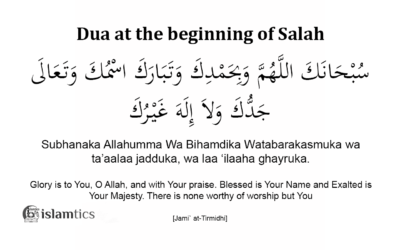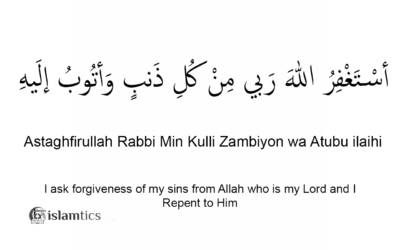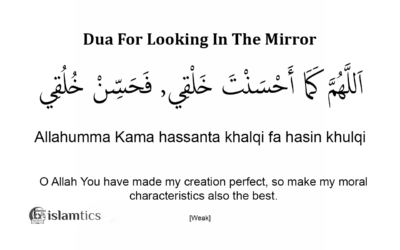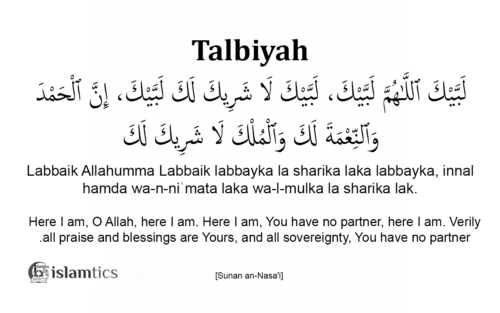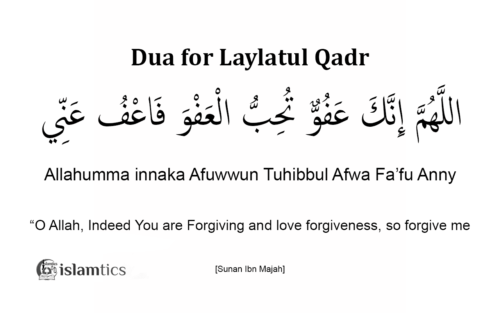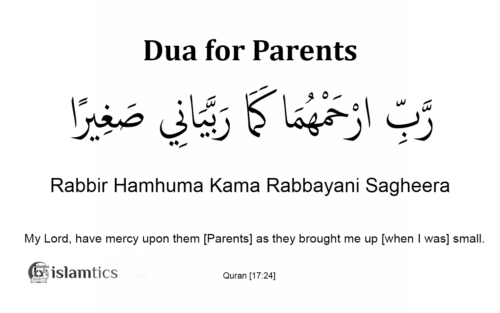Reciting this Dua for Breaking Fast after a long day of fasting is one of the easiest and best ways to earn good deeds for following the Sunnah of our beloved prophet Muhammed (ﷺ).
There is only one Dua that is proven that when the Messenger of Allah (ﷺ) opens his fasting he used to recite and we will cover its meaning, Transliteration, and how it is written in Arabic.
Table of Contents
Pronunciation
The following video we have made will help you learn the proper pronunciation of the Dua for opening fast word by word:
Dua for Breaking Fast in Arabic
The full Dua for Opening Fast is written in Arabic with the Diacritical as:
ذَهَبَ الظَّمَأُ، وَابْتَلَّتِ الْعُرُوقُ، وَثَبَتَ الْأَجْرُ إِنْ شَاءَ
and Without the Diacritical:
ذهب الظمأُ وابتلَّت العروقُ وثبت الأجرُ إن شاء اللهُ
Transliteration
Dhahaba alZama’ wa Abtalat al-‘Urooq wa Thabata al-Ajr In Sha Allah
Dua for Breaking Fast Meaning
The General meaning of the dua is “Thirst has gone, the arteries are moist, and the reward is sure if Allah wills.“

When to recite the Dua
The Dua should be recited when breaking fast in the month of Ramadan or any other day. And it should be right before putting anything in your mouth.
Other Dua
Saying Du’a after doing acts of worship is deeply rooted in Shariah, Like making Du’a after praying and after completing the rituals of Hajj.
You may say whatever Du’a you want, as long as you are aware that isn’t mentioned specifically in the Sunnah, but because it is the end of an act of worship.
We would like to mention this popular Dua for opening fast that many recite as part of sunnah but it is important to know that it is considered Daif that is written as the following:
Transliteration: Allahumma laka sumtu wa ‘ala rizqika aftartu
Arabic: اللَّهُمَّ لَكَ صُمتُ وَعَلَى رِزقِكَ أَفطَرتُ
Meaning: O Allah, for You have I fasted and by Your provision, I have broken my fast
The Dua was narrated by Abu Dawud, 2358 but it is a Mursal hadith so it is considered da’if (weak). Al-Albani classed it as Da’if in Daif Abi Dawud as well.
Dua Source from Hadith
Marwan ibn Salim al-Muqaffa’ said: I saw Ibn Umar holding his beard with his hand and cutting what exceeded the handful of it. He (Ibn Umar) said that the Prophet (ﷺ) said when he broke his fast: Thirst has gone, the arteries are moist, and the reward is sure, if Allah wills.
Sunan Abi Dawud 2357



